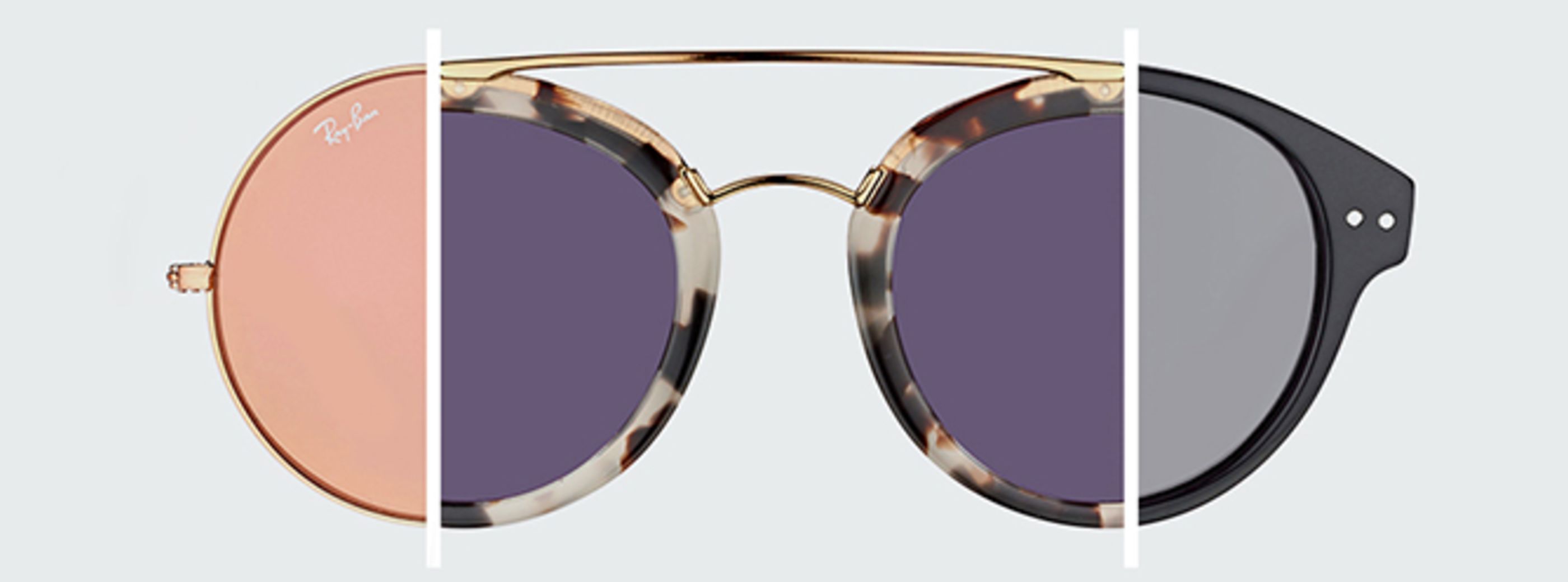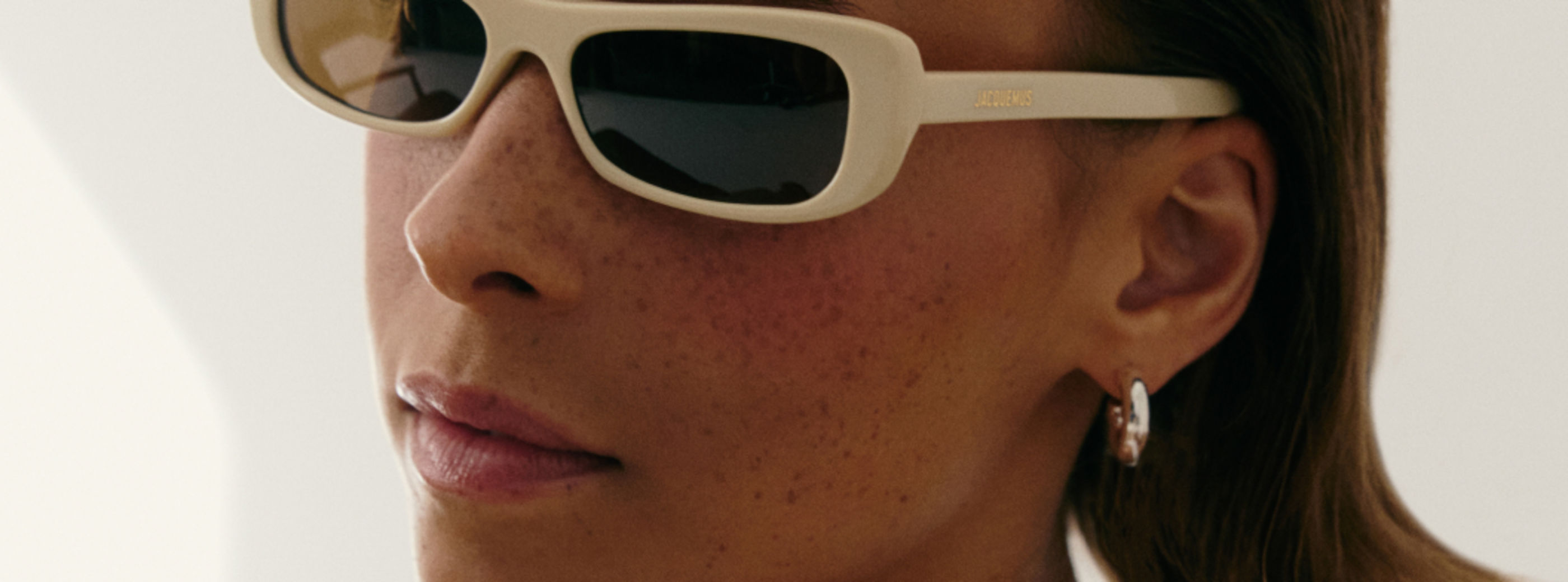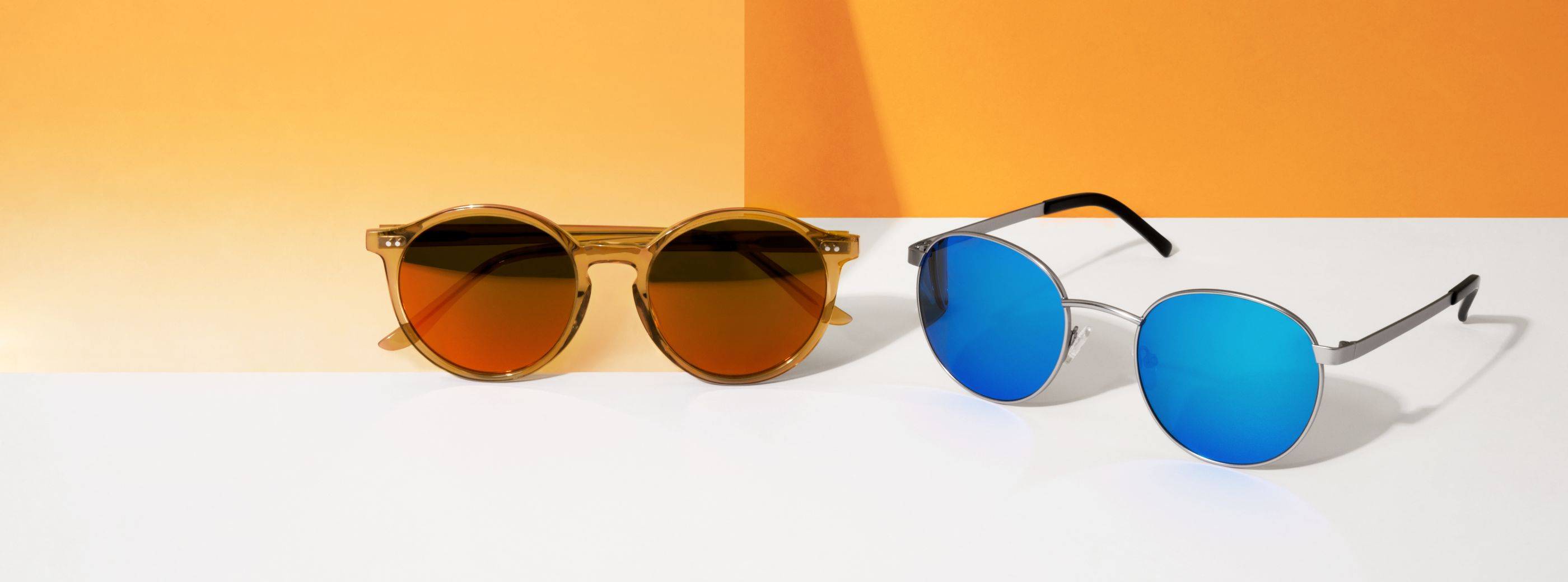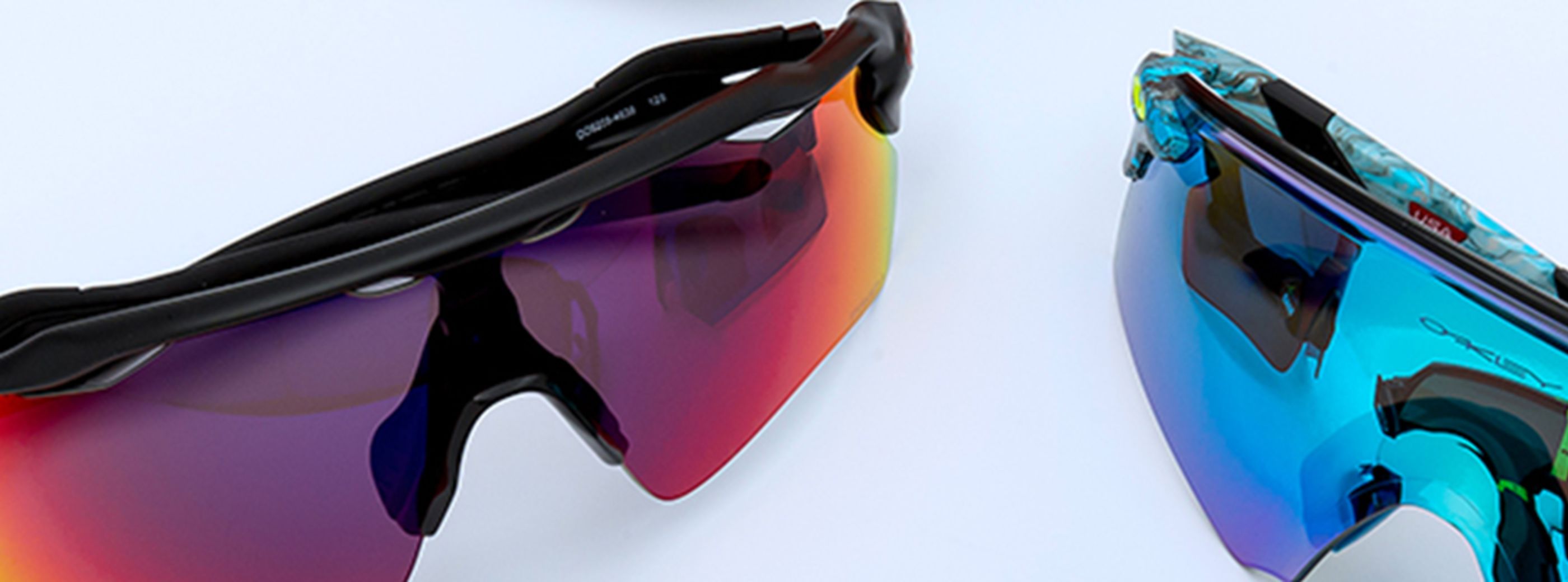Sunglass frame materials – an overview
Various materials are used in the manufacturing of glasses today, with designs for every taste. Likewise, sunglasses come in all shapes, colours and sizes, and their frames can be made from metal, plastic or natural materials.
Your choice of frame material depends largely on what you want your sunglasses to be able to do. The materials offers different advantages when it comes to weight, flexibility and stability. Here we’ll introduce the most common materials.
Sunglasses made out of metal
Stainless steel
Stainless steel is far less likely than some materials to irritate the skin. It’s robust, corrosion-resistant and has high elasticity.
Titanium
Titanium Sunglasses score highly when it comes to weight, being up to 50% lighter than other frames. Titanium is a high-quality material that requires skilled workmanship, and this tends to be reflected in the price. As titanium contains no nickel it can be a good choice for people with allergies.
Aluminium
Weight is also a benefit of aluminium frames, which are very comfortable to wear. Another advantage is their resistance to corrosion.
At a glance: Advantages and disadvantages of metal
Metal offers one clear benefit: it’s robust, making much thinner frames possible. It’s also scratch-resistant and more difficult to break than other materials.
Sunglasses with metal frames tend to look discreet and subtle, making them ideal for a more elegant, serious look. Various colours can be achieved by alloying with other metals.
Metal frames aren’t suitable for sports. Over time they don’t react well to sweating and they are more likely to cause injury.
Allergy alert: To be on the safe side, go for frames that don’t contain nickel or copper.
Sunglasses made out of plastic
Acetate
This material consists partly of cotton fibres. Acetate Sunglasses are robust and therefore ideal for sport. Another plus: there are almost no limits when it comes to colour, with acetate models available in almost every shade imaginable, including clear frame sunglasses.
Polyamide
Sunglasses made from polyamide are less likely to suffer cracks or become brittle. However there is a risk of them breaking under high stress. Glazing and fitting adjustments are also quite a challenge with this material.
At a glance: advantages and disadvantages of plastic
Plastic is easy to handle and work with. It’s hard-wearing, so there’s nothing to fear from contact with sweat or make-up. Sunglasses made from plastic also adapt well to the head of the individual wearer, as they are malleable under the influence of heat.
The variety of designs is endless. Numerous colour combinations are possible, including authentic-looking tortoise-shell or havana.
One possible drawback is weight. While there are plastic frames that are light to wear, larger frames tend to be on the heavier side.
Although sunglasses made out of plastic have a robust quality, they are more susceptible to scratches and breakage than, for example, metal.
Sunglasses made out of natural material
Wood
Wooden sunglasses are a sign of individuality, as every model is unique. So if you’re looking for something a bit out of the ordinary, you might want to consider investing in sunglasses with a wooden frame. Depending on the design, the entire frame or just part of it, such as the temples or front, will be made from this natural material.
Natural horn
The material for these frames comes from the horns of water buffalo that are not listed as protected species. Sunglasses made out of this material often have a glossy appearance and are very gentle on the skin. However, they don’t react well to intense heat or moisture. Nowadays there are an increasing number of models that mimic the look of horn glasses but are made out of plastic.
At a glance: Advantages and disadvantages of natural material
If you want a look that stands for extravagance and show-stopping individuality, sunglasses made out of natural material may well be the choice for you.
Thanks above all to their texture, natural materials are aesthetically very attractive. But they’re also popular for their anti-allergic qualities.
The demanding nature of manufacturing such unusual materials does come at a cost. However, at Mister Spex you can find, for example, frames made out of wood at affordable prices.














/hp-hero-slider-transition-lenses)
